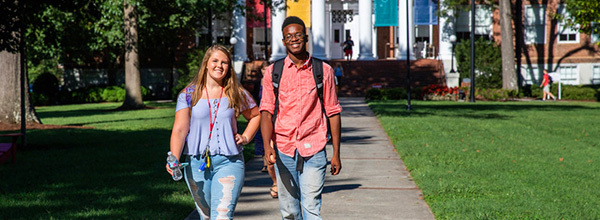Chemistry Education Degree (BA)
Are you interested in pursuing a career in science education? If so, the chemistry education major at the University of Lynchburg is the perfect program for you! Our program will give you a broad foundation in chemistry and extensive teacher training.
This program will teach basic chemistry concepts like atomic structure, chemical reactions, and organic chemistry. You’ll also take education courses that offer essential training in educational psychology, curriculum development, and classroom management. Hands-on student teaching placements in real-world classroom settings will put your skills into action and ready you for your teaching career.
Experienced educators will guide you and help you to develop the confidence to excel as a high school chemistry teacher. Upon completion, candidates will be eligible for a high school teaching license.
As a Lynchburg chemistry education student, you’ll:
- Understand important chemistry concepts and learn how to apply them in real-life situations.
- Gain hands-on teaching skills by participating in laboratory experiments and teaching practice sessions.
- Work with experienced faculty to create engaging lesson plans and instructional materials.
- Grow your skills through student teaching placements in high school settings.
- Graduate ready to inspire the next generation of scientists and impact education.
Student Spotlights
Faculty Contacts
Stefanie B. Copp, EdD
Assistant Professor of Curriculum and Instruction
Chair of the Elementary Education Department







